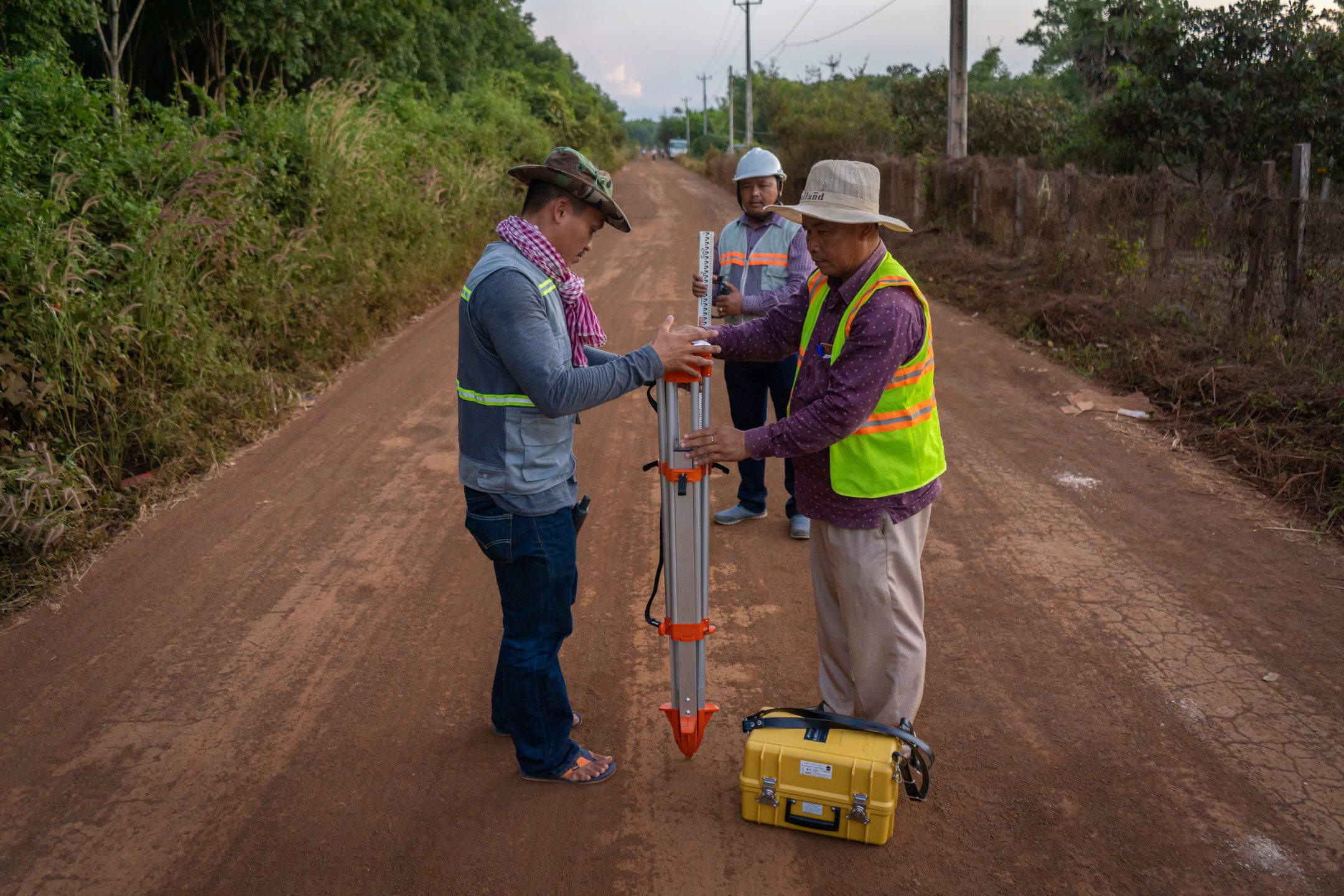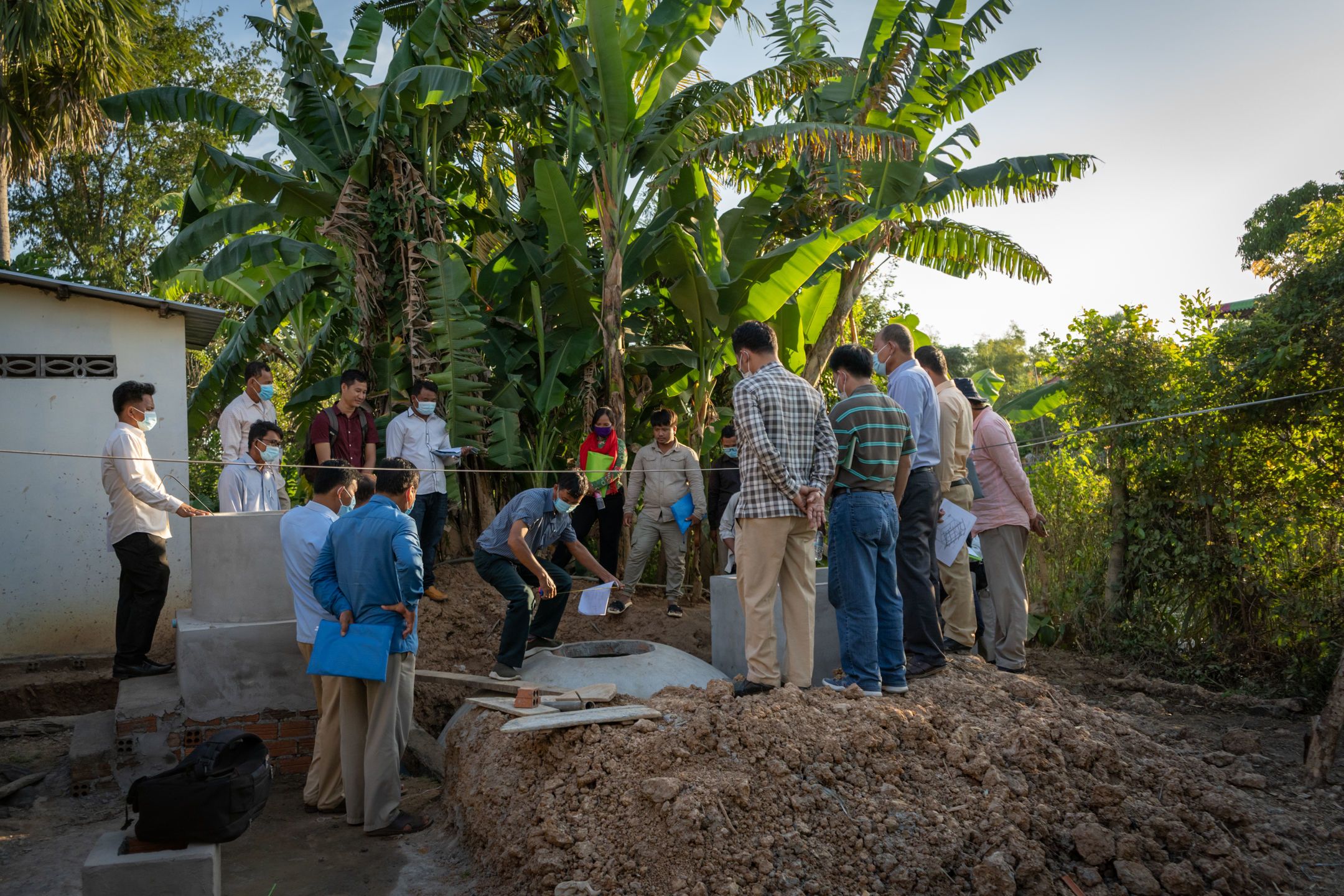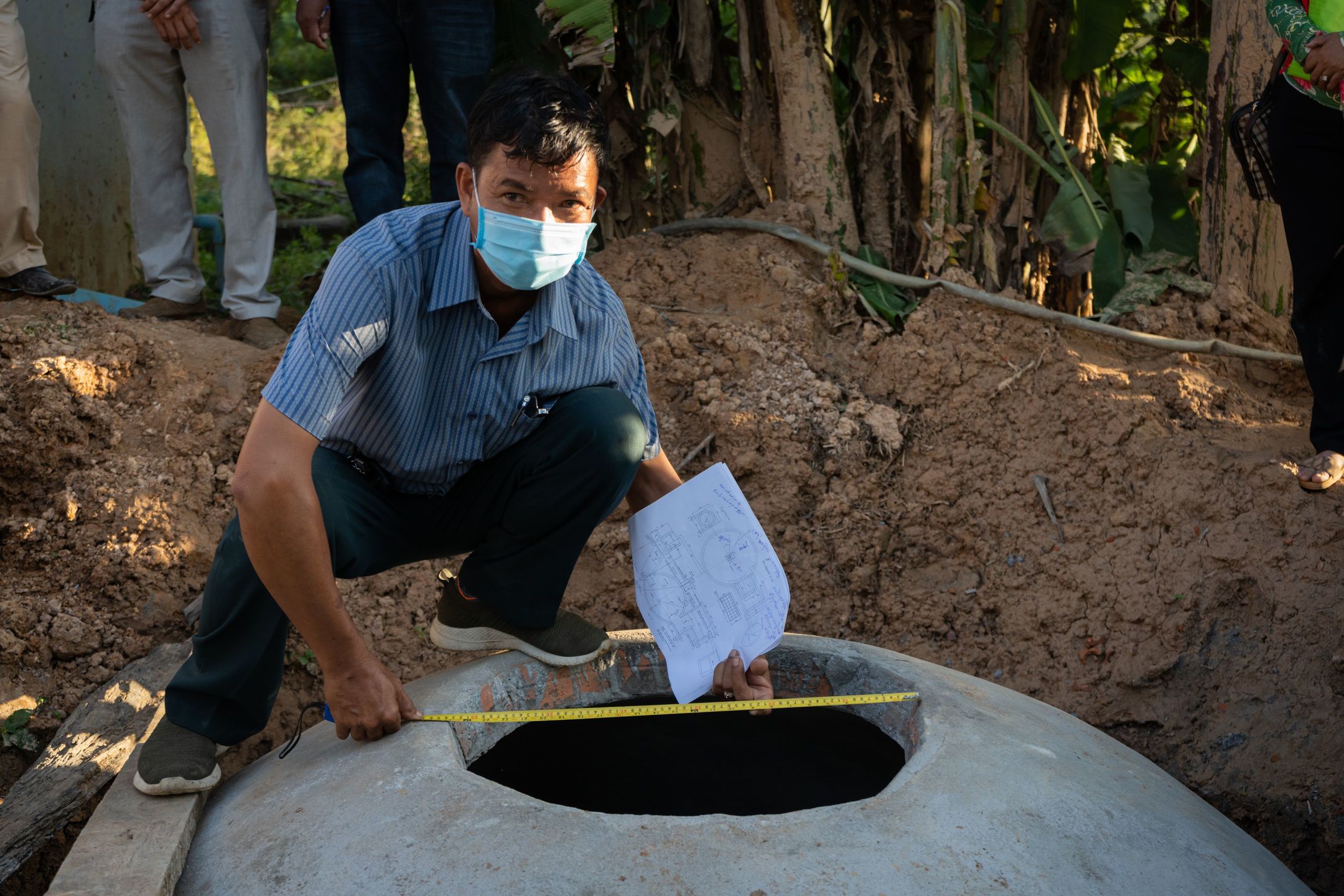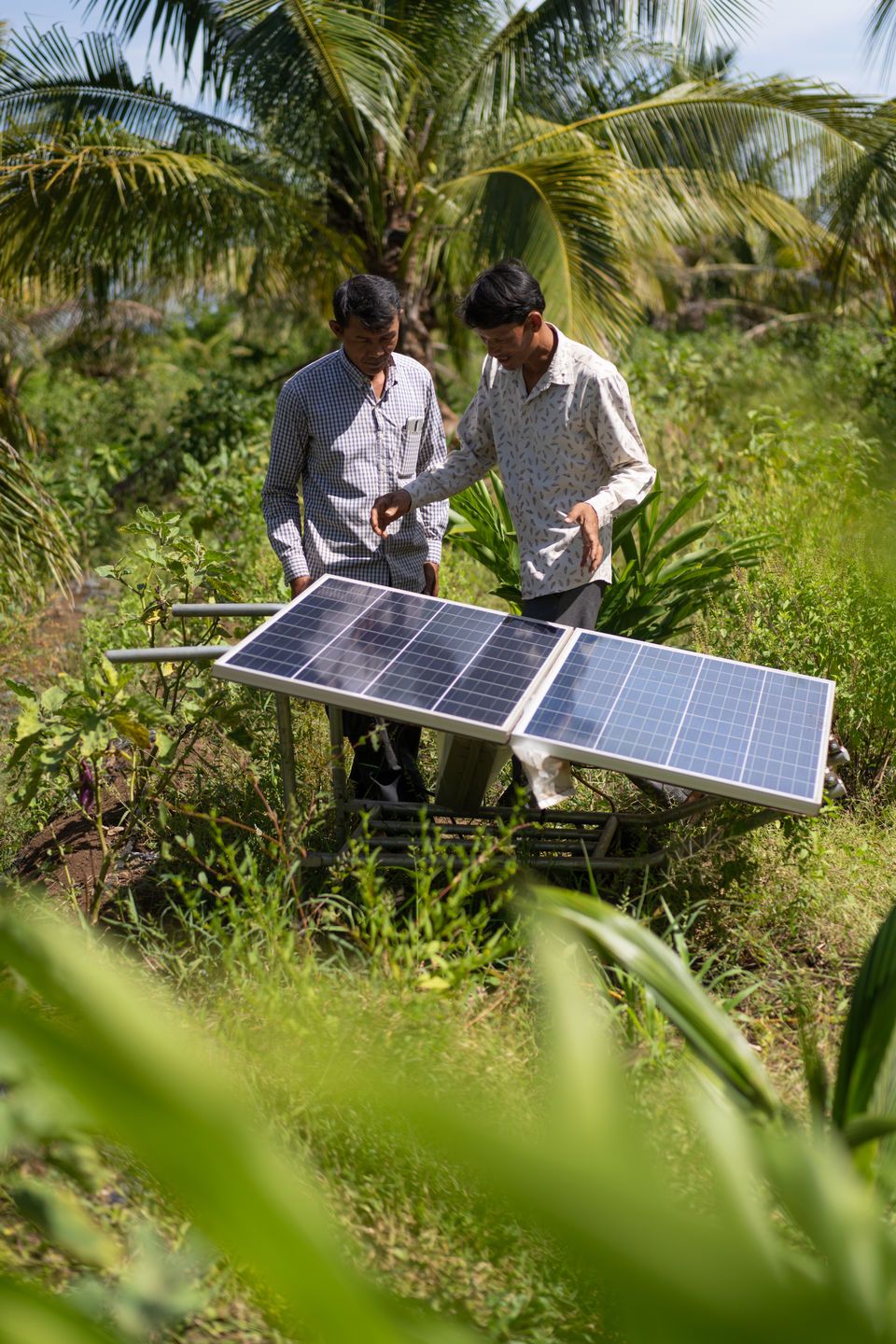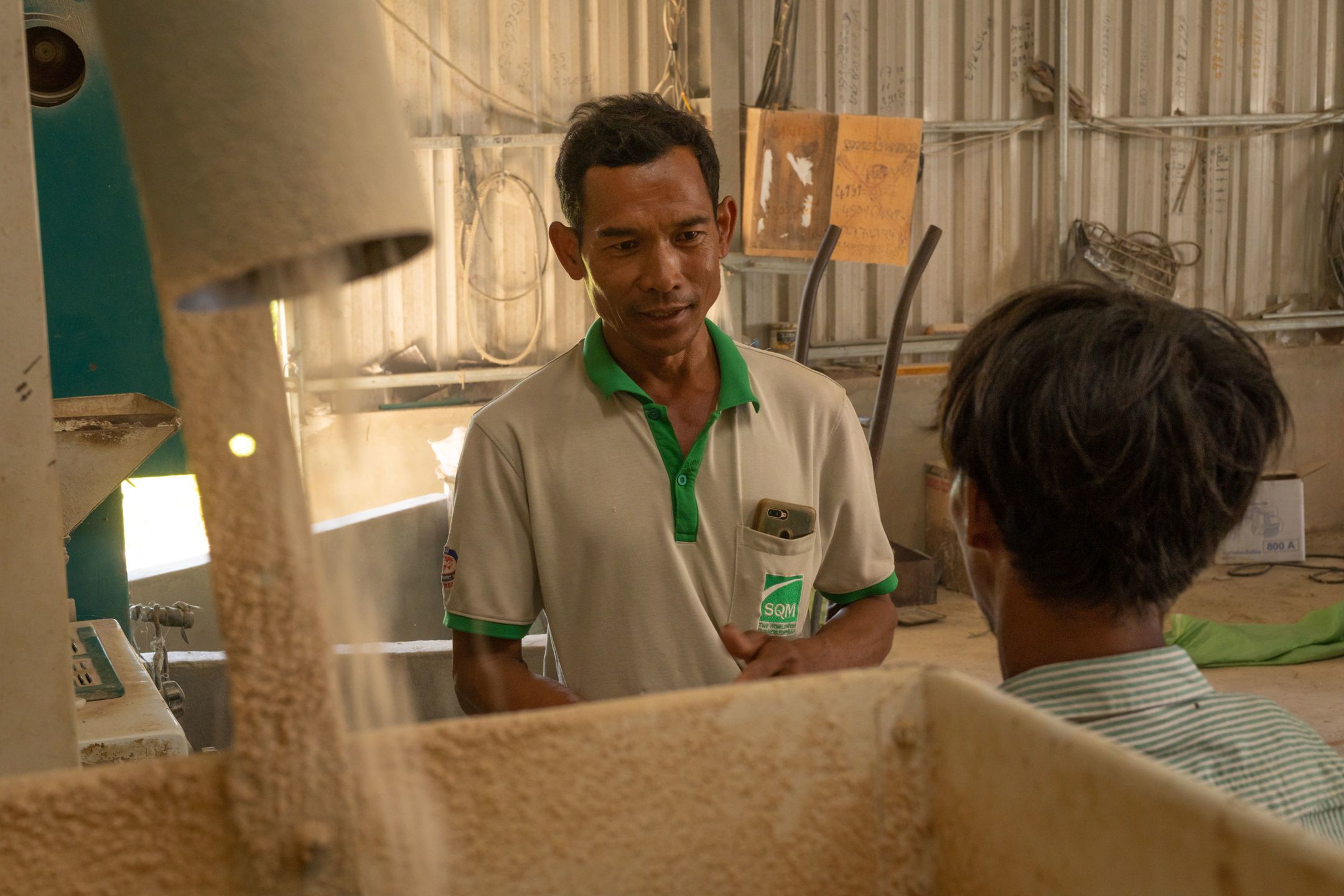Cambodia's climate action game-changer: resilient agricultural value chains
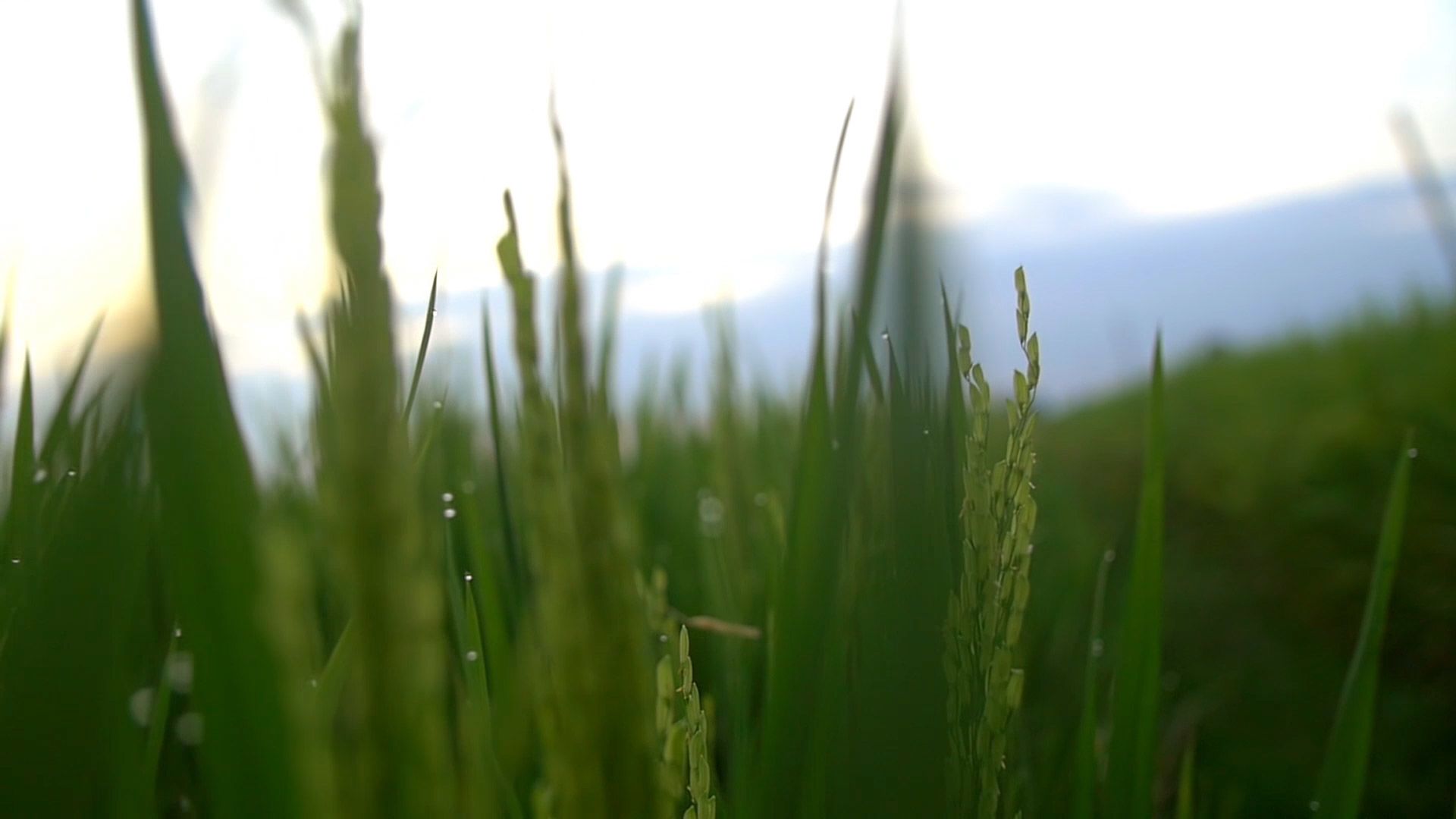
The Green Climate Fund is reducing greenhouse gas emissions and building the climate resilience of Cambodia's agricultural value chains.
Sim Dany is a farmer in Kampong Cham Province in Cambodia. "I know farming isn't every woman's dream job, but I've never gotten tired of doing it. I guess I'm tougher than most," she says with a laugh.
Sim Dany is a farmer in Kampong Cham Province in Cambodia. Photo: GCF/Christopher Rompré
Sim Dany is a farmer in Kampong Cham Province in Cambodia. Photo: GCF/Christopher Rompré
In Cambodia farming is a way of life. Almost 80 per cent of the country’s population lives in rural areas, and most of them depend on rain-fed agriculture for a living. Agriculture accounts for 57.6 per cent of the rural labour force, and for over 30 per cent of GDP. "My life depends on being a farmer," says Sim Dany. "It's a job I inherited from my parents, and it allows me to send my children to school and give them a good home."
Like many in the province, Sim Dany is getting more and more anxious about climate change. High risks of floods and drought, combined with poverty and low adaptive capacity, make Cambodia one of the most climate vulnerable countries in the world. Rainfall patterns have been shifting, with longer droughts, short rainy seasons and occasional flash floods. Furthermore, lack of physical infrastructure and adequate early warning systems amplify the harmful effects of changing weather patterns.
Rice farming is the lifeblood of Cambodia's rural economy. Photo: GCF/Christopher Rompré
Rice farming is the lifeblood of Cambodia's rural economy. Photo: GCF/Christopher Rompré
The adverse impacts of climate change include increased risk of poor yields or even crop failure, and greater incidence of pests and diseases. The latest National Water Status Report of Cambodia's Ministry of Water Resources and Meteorology confirms that the frequency and intensity of floods, droughts and windstorms has increased since 1989, when national weather and climate data began to be reliably recorded.
Cambodia’s agricultural value chains are not yet well developed and private sector investment in the sector remains low. This leaves many farmers, like sim Dany, stuck at basic subsistence income levels, and vulnerable to climate change shocks.
"I've been farming the old-fashioned way for a long time, and now with the climate changing we can hardly grow our rice and yields are getting lower."
The Green Climate Fund is reducing greenhouse gas emissions and building the climate resilience of Cambodia's agricultural value chains.
Sim Dany is a farmer in Kampong Cham Province in Cambodia. "I know farming isn't every woman's dream job, but I've never gotten tired of doing it. I guess I'm tougher than most," she says with a laugh.
Sim Dany is a farmer in Kampong Cham Province in Cambodia. Photo: GCF/Christopher Rompré
Sim Dany is a farmer in Kampong Cham Province in Cambodia. Photo: GCF/Christopher Rompré
In Cambodia farming is a way of life. Almost 80 per cent of the country’s population lives in rural areas, and most of them depend on rain-fed agriculture for a living. Agriculture accounts for 57.6 per cent of the rural labour force, and for over 30 per cent of GDP. "My life depends on being a farmer," says Sim Dany. "It's a job I inherited from my parents, and it allows me to send my children to school and give them a good home."
Like many in the province, Sim Dany is getting more and more anxious about climate change. High risks of floods and drought, combined with poverty and low adaptive capacity, make Cambodia one of the most climate vulnerable countries in the world. Rainfall patterns have been shifting, with longer droughts, short rainy seasons and occasional flash floods. Furthermore, lack of physical infrastructure and adequate early warning systems amplify the harmful effects of changing weather patterns.
Rice farming is the lifeblood of Cambodia's rural economy. Photo: GCF/Christopher Rompré
Rice farming is the lifeblood of Cambodia's rural economy. Photo: GCF/Christopher Rompré
The adverse impacts of climate change include increased risk of poor yields or even crop failure, and greater incidence of pests and diseases. The latest National Water Status Report of Cambodia's Ministry of Water Resources and Meteorology confirms that the frequency and intensity of floods, droughts and windstorms has increased since 1989, when national weather and climate data began to be reliably recorded.
Cambodia’s agricultural value chains are not yet well developed and private sector investment in the sector remains low. This leaves many farmers, like sim Dany, stuck at basic subsistence income levels, and vulnerable to climate change shocks.
"I've been farming the old-fashioned way for a long time, and now with the climate changing we can hardly grow our rice and yields are getting lower."
The Royal Government of Cambodia has been committed to addressing climate change. Most recently in 2020, it committed sweeping range actions to reduce CO2 emissions by 64.6 million tonnes of CO2 equivalent each year by 2030 under its Nationally Determined Contributions (NDCs). Reductions in the agricultural sector are set to play a major role in these targets. To support the Cambodian Government's agricultural sector to reduce emissions and adapt to the impacts of climate change the Green Climate Fund (GCF), in partnership with the Asian Development Bank (ADB), is working to increase its productivity and competitiveness through the Climate-Friendly Agribusiness Value Chains Sector Project.
GCF Project FP076
GCF Project FP076
The project specifically targets the agricultural sector, which is the most vulnerable to climate impacts, and which has suffered extensive losses in terms of crops and infrastructure during previous extreme climate events.
"Climate change has accelerated and it is our farmers’ biggest concern, so it needs to be our biggest concern also … [The] Climate-Friendly Agribusiness Value Chains is the biggest climate project that has ever happened in Cambodia."
Sam Chhom Sangha, Project Director for the Ministry of Agriculture, Forestry and Fisheries
Sam Chhom Sangha, Project Director for the Ministry of Agriculture, Forestry and Fisheries
The project will improve climate resilience and reduce the carbon footprint of each stage of the agricultural value chain by investing in climate-resilient agricultural production and post-harvest infrastructure, and by promoting the use of low-carbon technologies at various stages in the value chain.
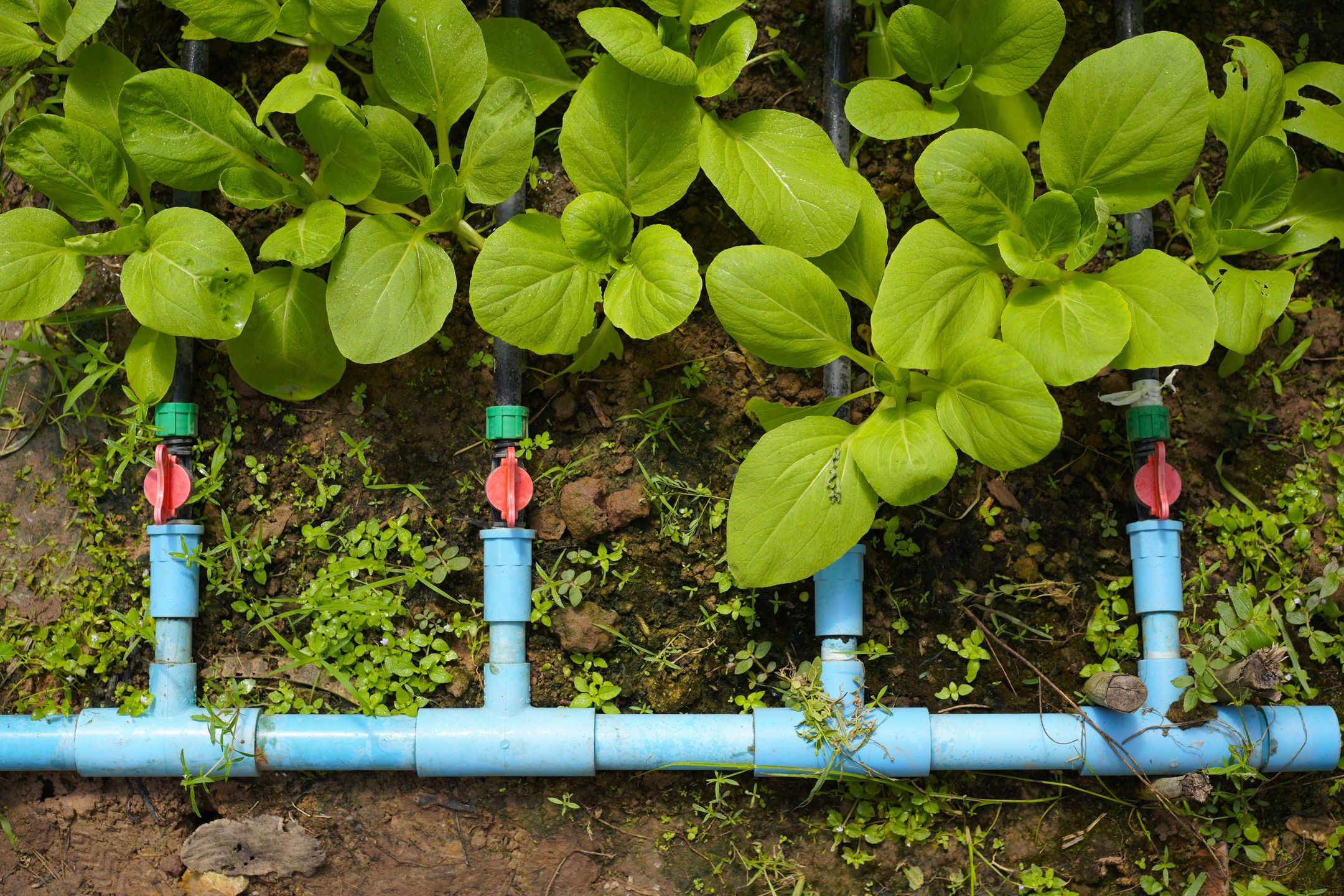
Rehabilitating and upgrading infrastructure

Cambodia’s lack of infrastructure is largely due to its history of conflict, low population density, and limited economic capacity to invest in infrastructure.
One of the key ways that GCF will improve climate resilience at each stage of the value chain is by investing in critical infrastructure. In particular, the rehabilitation of irrigation and water management systems, the development of climate-resilient road networks, and the construction of innovative biodigesters.
Reliable access to water
The lack of irrigation systems and other water infrastructure restricts most farmers to a single rain-fed crop per year. The reliance on increasingly volatile rain levels leaves farmers vulnerable, while poor on-farm water management is constraining production. Anticipated changes in rainfall regimes from climate change are expected to make the situation even worse
The project will therefore seek to construct or rehabilitate at least 800 on-farm water catchment ponds and small reservoirs, which will increase water availability for crop production in at least 15,000 ha, making at least 25,000 households more resilient to climate shocks or slow onset climate changes.
"Rehabilitating irrigation systems and canals like this one in Kbal Touk is so important because it ensures that farmers have stable access to water," according to Irrigation Design Engineer Khin Toda. "The spillways also help control damage during floods."
In addition, laser land levelling and drip irrigation systems will be introduced at farm level to effectively prepare the land and manage water resources. Laser land levelling, a simple operation using lasers to ensure the cropland is as flat as possible, can reap massive returns such as increasing yields, saving water and reducing greenhouse gas emissions. Meanwhile, on-farm drip irrigation systems will focus on mango crops, which are highly vulnerable to rain patterns. Introducing drip irrigation for mango production will improve the quality of the fruit, increase yields, and reduce the value chain’s sensitivity to climate change and climate variability
Connecting people through roads
As Cambodian farmers face increasingly variable weather conditions, having easy and reliable roads to access markets and supply chains is critical. However, many of Cambodia’s rural road networks are severely underdeveloped and easily disrupted by flooding or heavy rainfall.
"For example, there was a two-week flood in 2011," explains road design specialist Sam Sothearo. "It caused losses and damage of nearly USD 600 million to rural infrastructure, especially farm road networks, and made life more difficult for farmers who were already struggling to deal with the flood."
The Climate-Friendly Agribusiness Value Chains Sector Project aims to upgrade and improve at least 250 kilometers of farm roads and tracks. The improved roads include climate-resilient features such as:
- increasing embankment heights
- providing cross drainage
- selecting embankment materials suitable for increased permeability
- green planning (bioengineering) to protect from erosion and landslides
GCF will support the upgrading and climate-proofing of these rural roads by providing a USD 4.7 million loan and a USD 3.6 million grant.
Turning waste into renewable energy
Another innovative aspect of the project is the deployment of rural renewable energy infrastructure. In particular, GCF is supporting the installation of 12,000 biodigesters. The biodigesters are remarkable because they can take waste such as food scraps, oil, grease, yard waste, and animal manure, and turn it into biofuels and rich fertilizer.
Douk Radaly, Deputy Director of Kampong Cham Department of Agriculture, Forestry and Fisheries sees a bright future for the biodigesters.
Douk Radaly, Deputy Director of Kampong Cham Department of Agriculture, Forestry and Fisheries
Douk Radaly, Deputy Director of Kampong Cham Department of Agriculture, Forestry and Fisheries
"They will be a big benefit for farmers in rural areas. For one, the biogas will save them time and money, as they won't have to waste their time looking for wood, recharging batteries, or buying petroleum. Second, biodigesters promote a clean and healthy environment, as all waste is collected for use in the biodigester."
The biodigesters will provide health and productivity benefits to approximately 90,000 persons, including nearly 45,000 women, due to improved household air quality and time saved from not having to collect fuel wood for cooking. An estimate of 268,000 biodigester units are planned in the project’s four target provinces (Kampong Cham, Tbong Khmum, Kampot, and Takeo), providing enormous potential to reduce emissions and air pollution.
Irrigation Design Engineer Khin Toda works with project managers at the Kbal Touk irrigation canal. Photo: GCF/Christopher Rompré
Irrigation Design Engineer Khin Toda works with project managers at the Kbal Touk irrigation canal. Photo: GCF/Christopher Rompré
Irrigation Design Engineer Khin Toda works with project managers at the Kbal Touk irrigation canal. Photo: GCF/Christopher Rompré
Irrigation Design Engineer Khin Toda works with project managers at the Kbal Touk irrigation canal. Photo: GCF/Christopher Rompré
Road workers receive training on using land surveying equipment. Photo: GCF/Christopher Rompré
Road workers receive training on using land surveying equipment. Photo: GCF/Christopher Rompré
Road workers receive training on using land surveying equipment. Photo: GCF/Christopher Rompré
Road workers receive training on using land surveying equipment. Photo: GCF/Christopher Rompré
A biodigester under construction in Kampong Cham province. Photos: GCF/Christopher Rompré
A biodigester under construction in Kampong Cham province. Photos: GCF/Christopher Rompré
A biodigester under construction in Kampong Cham province. Photos: GCF/Christopher Rompré
A biodigester under construction in Kampong Cham province. Photos: GCF/Christopher Rompré

Promoting climate-resilient agriculture and agribusiness
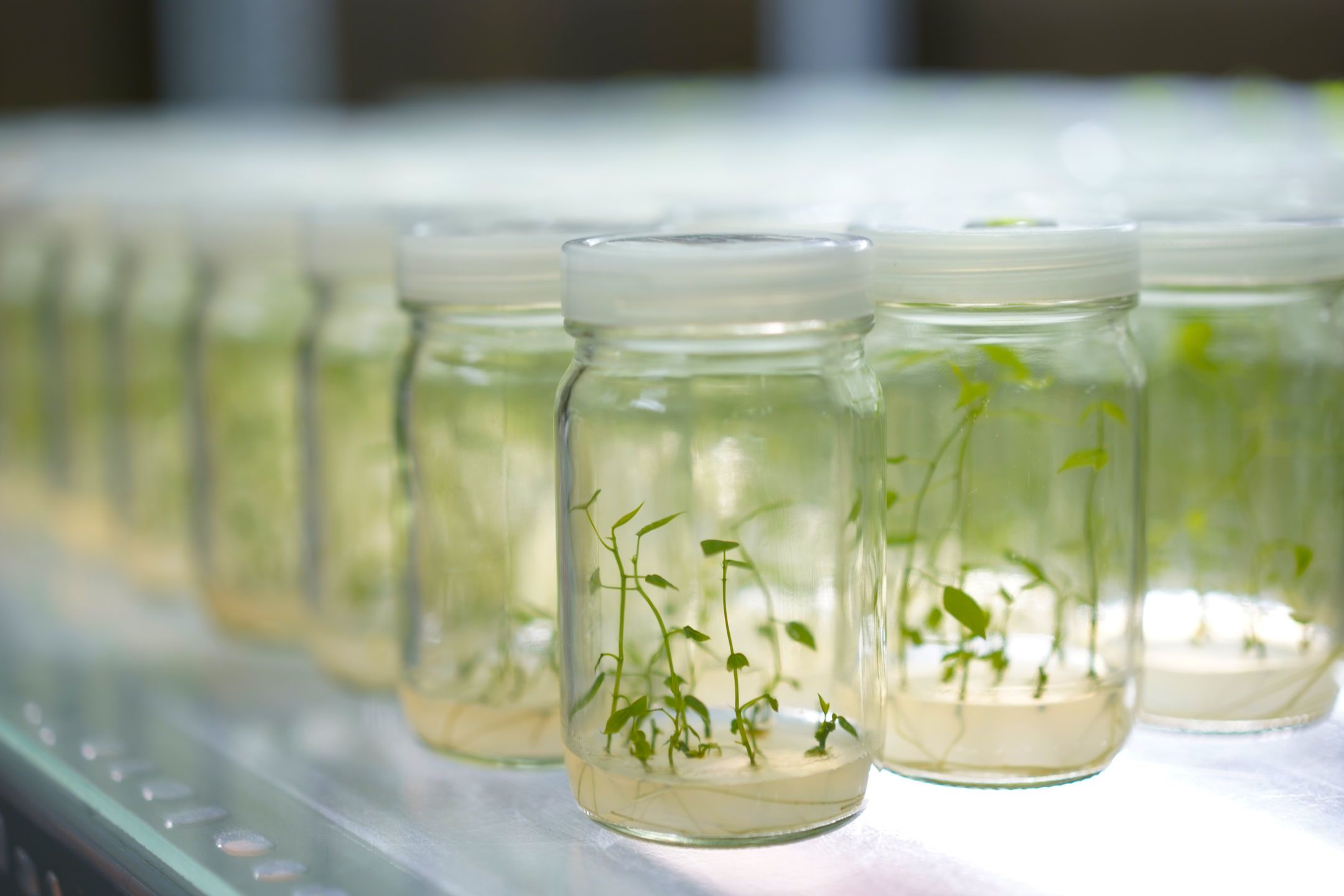
Climate-resilient seed varieties
A critical component of strengthening farmers’ climate resilience is making the seeds they plant more resilient. GCF is supporting the Cambodian Agricultural Research and Development Institute (CARDI) to develop and distribute climate-resilient varieties of rice and maize, two critical crops in Cambodia’s agricultural sector. These seeds will include tolerance to higher temperatures, salt water, drought, and prolonged submersion. Additional varieties will also have shorter cropping cycles allowing multiple yearly harvests.
Back in Kampong Thom, Sim Dany is one of the famers to get access to new rice varieties.
"I have just received a new rice variety this year [2020]. I planted it in June and harvested it in November. I'm thrilled to say that the increased yields were as high as I had hoped."
The adoption of climate-resilient varieties will be an essential aspect of the climate-resilient agriculture trainings described below. GCF will contribute USD 2.785 million grant to support the identification and multiplication of climate-resilient seed materials and varieties.
Climate-friendly agriculture
The challenge of effectively addressing climate change is compounded by outdated production tools and farming techniques. The lack of access to effective training, reliable extension services and accurate climate information services prevent farmers from effectively accessing markets and also from effectively coping with climate change.
GCF is supporting a broad programme of training and capacity development, collectively referred to as climate-resilient agriculture. These trainings will address innovative, climate-resilient practices such as laser land levelling, alternate wetting and drying, sustainable agricultural waste management, rational use of inputs (water, energy fertilisers, and pesticides), agroforestry, soil cover maintenance techniques, and many other modern practices that result in reduction of greenhouse gas emissions, while increasing yields and crop resilience.
The project focuses on improving farmers’ livelihoods, while strengthening their resilience to climate change.Photo: GCF/Christopher Rompré
The project focuses on improving farmers’ livelihoods, while strengthening their resilience to climate change.Photo: GCF/Christopher Rompré
To support climate-resilient agriculture, GCF is contributing a USD 7.1 million grant to deploy a farmer-focused training programme, reaching more than 40,000 farmers. At least 40 per cent of these farmers will be women. Climate-resilient agriculture, combined with investments in rural infrastructure and inputs, will harness untapped potential to increase yields, support sustainable livelihoods, and reduce emissions.
Researchers at the Cambodian Agricultural Research and Development Institute (CARDI) examine different crop strands to develop climate-resistant versions. Photo: GCF/Christopher Rompré
Researchers at the Cambodian Agricultural Research and Development Institute (CARDI) examine different crop strands to develop climate-resistant versions. Photo: GCF/Christopher Rompré
Researchers at the Cambodian Agricultural Research and Development Institute (CARDI) examine different crop strands to develop climate-resistant versions. Photo: GCF/Christopher Rompré
Researchers at the Cambodian Agricultural Research and Development Institute (CARDI) examine different crop strands to develop climate-resistant versions. Photo: GCF/Christopher Rompré
Over six years, the Climate-Friendly Agribusiness Value Chains Sector project aims to reduce carbon emissions by 240,000 tonnes. Photo: GCF/Christopher Rompré
Over six years, the Climate-Friendly Agribusiness Value Chains Sector project aims to reduce carbon emissions by 240,000 tonnes. Photo: GCF/Christopher Rompré
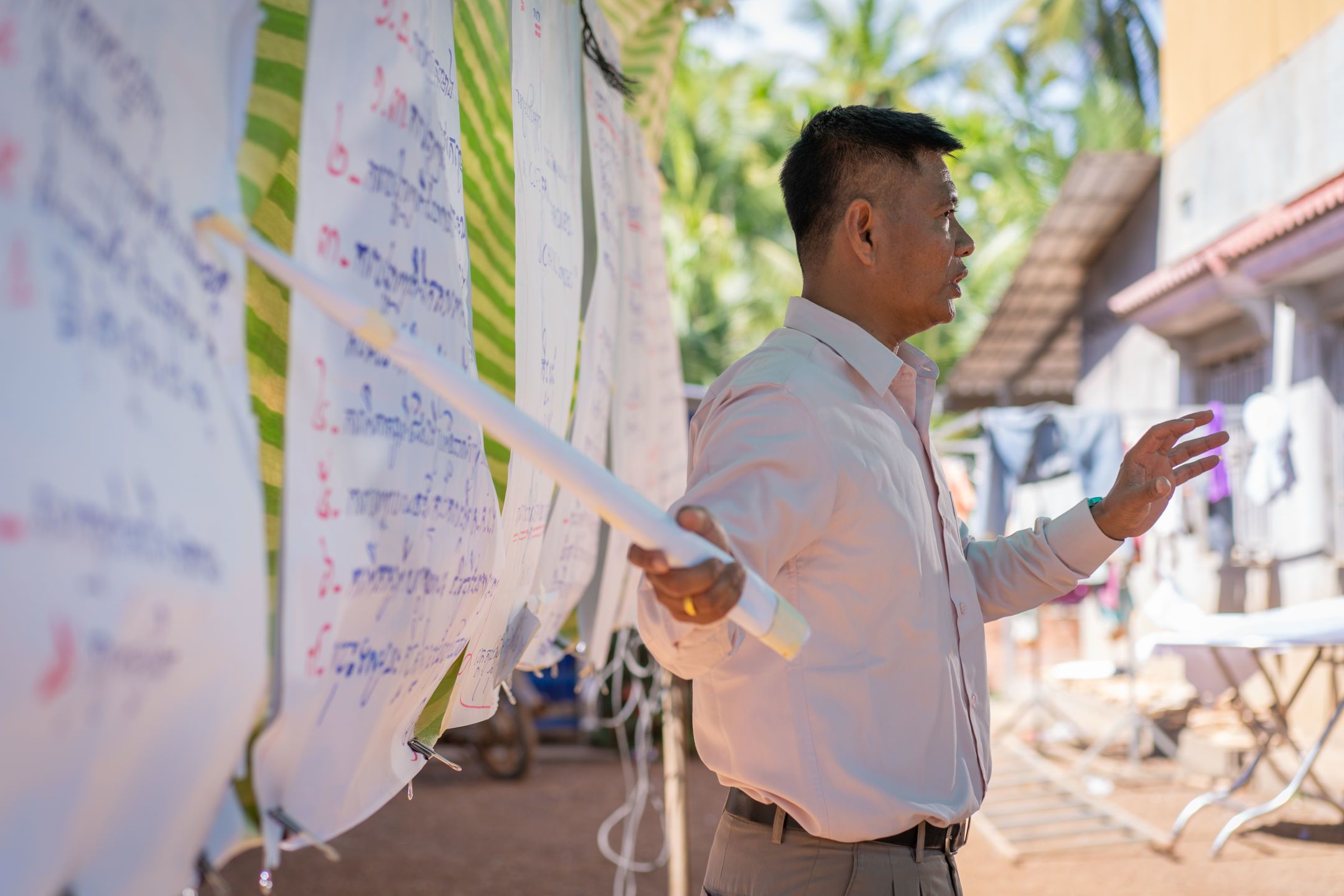
Community-driven farming
While investment in infrastructure and hands-on training are the most visible parts of the project, it is actually the development and support of agricultural cooperatives (ACs) that plays the most important role in establishing long-term climate-friendly supply chains. ACs play a central role in farming communities - and have enormous potential to support small-holder farmers. They support farmers by providing physical value chain infrastructure like drying, storage, and processing facilities, but also by serving as a venue that encourages farmers to work together to enhance their bargaining power, product marketing, and knowledge sharing.
Mach Sarou, the head of an AC in Phnom Bros village, says "I think forming an agricultural cooperative was crucial for us. Firstly, we are able to build a collective voice to advocate with the government, for example, to subsidise new technologies and good quality seeds, and build irrigation systems. In addition, we can take a firm stand with the buyers about the value of our crops. If we don't unite to set the cost of our crops, the buyers won't listen to us!"
Despite their critical role, many ACs are underdeveloped or do not sufficiently include poorer small-holder farmers. As part of their capacity building, alongside climate-resilient agricultural training, GCF is supporting the development of ACs through management training, policy, and the upgrading of AC infrastructure. The proposed interventions will encourage the private sector to work more closely with farmers and ACs through public-private partnership (PPP) arrangements. Women and other vulnerable groups will be proactively involved in the identification, selection, and implementation of agribusiness investments and women-led agro-enterprises will be explicitly supported.
Agricultural cooperative head Mach Sarou at the group's rice milling facility. Photo: GCF/Christopher Rompré
Agricultural cooperative head Mach Sarou at the group's rice milling facility. Photo: GCF/Christopher Rompré
Agricultural cooperative head Mach Sarou is attending an AC training course on climate-resilient agriculture. Photo: GCF/Christopher Rompré
Agricultural cooperative head Mach Sarou is attending an AC training course on climate-resilient agriculture. Photo: GCF/Christopher Rompré
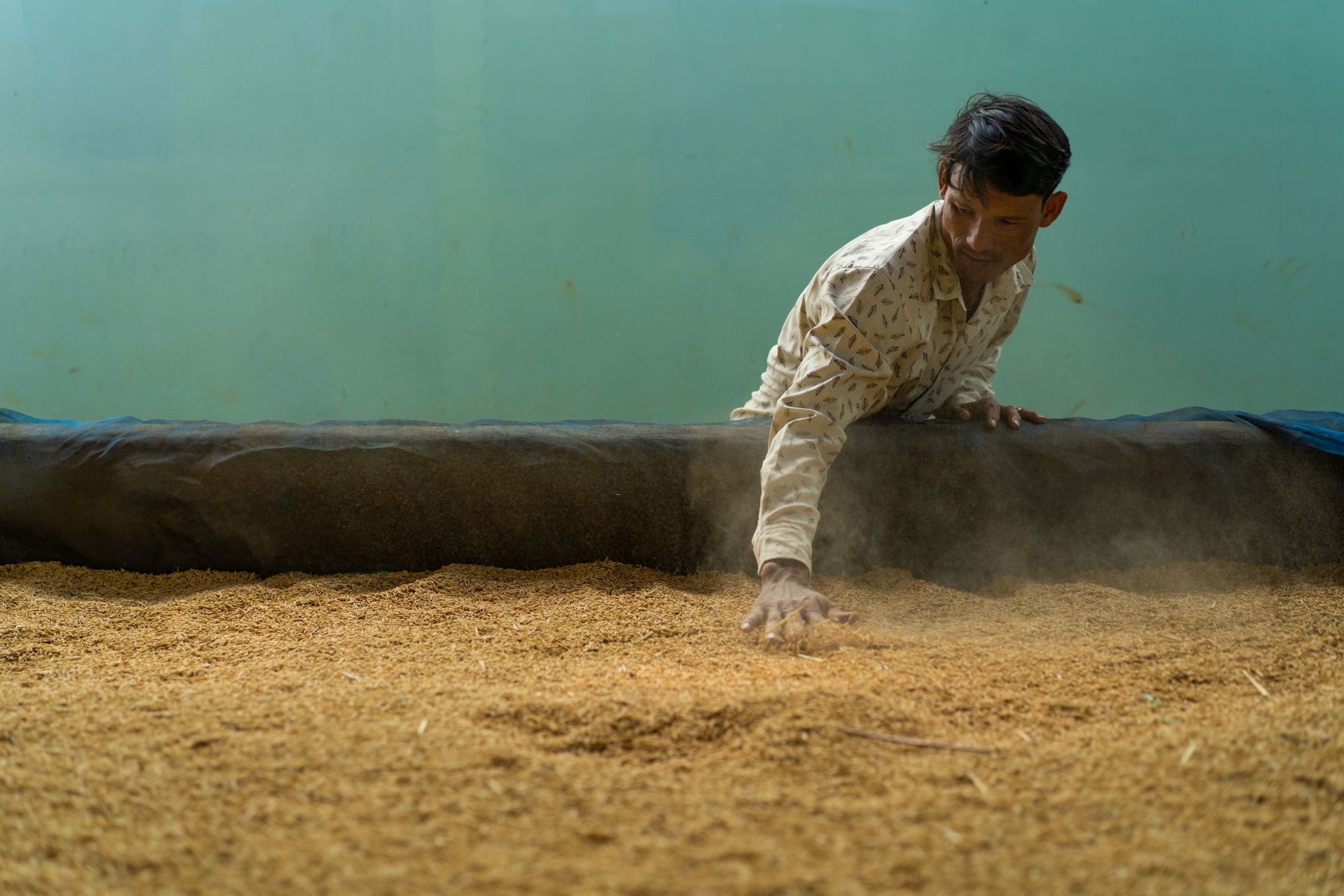
A better future for farmers

For Sim Dany, the goal is clear. "I have been farming my whole life. I want nothing more than to be safe from climate change, and to be able to grow my farm. That way I can support my children all the way through school until they graduate and become good citizens in society. That's all I want when I am old."
Farmer Sim Dany discussing new rice varieties at an agricultural cooperative event. Photo: GCF/Christopher Rompré
Farmer Sim Dany discussing new rice varieties at an agricultural cooperative event. Photo: GCF/Christopher Rompré
Although the Climate-Friendly Agribusiness Value Chains Sector Project is framed in economic terms such as "value chains", the real-life impacts of the project are undeniable. Cambodian farmers like Sim Dany can look towards a future with improved food security and a more stable livelihood that is resilient to climate change, while all Cambodians will benefit from substantially reduced greenhouse gas emissions as a result of the project.


















